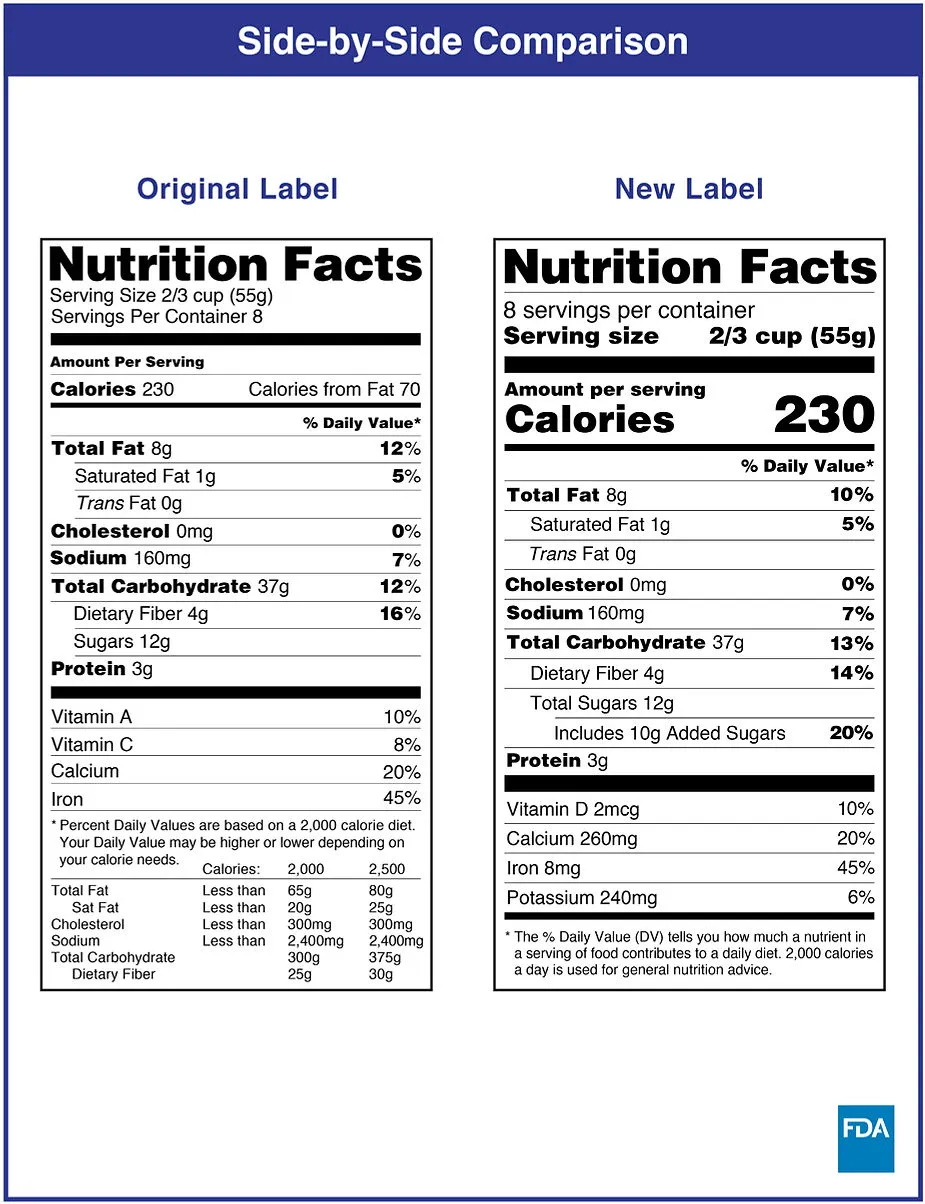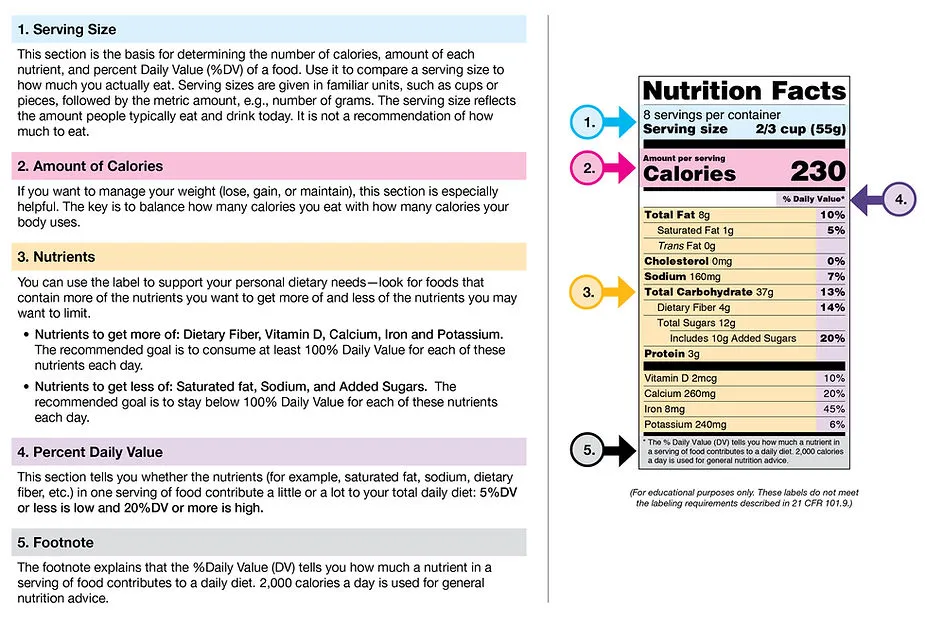History of the U.S. nutrition facts label
If you are a food manufacturer, you probably know how important it is to have a reliable and compliant nutrition facts label for your products. And if you are a recovering food addict, you must become adept at finding and interpreting ingredients listed on packaged and canned food labels.
How the nutrition facts label came to be and how it has changed over the years is an interesting history that involves food manufacturers, a woman supporting her mother’s health, the government, software databases and computers.

What is the nutrition facts label?
- The nutrition facts label is a standardized panel that provides information about the nutrient content of a food product
- It was first introduced in 1990 by the Food and Drug Administration (FDA) as part of the Nutrition Labeling and Education Act (NLEA)
- The NLEA aimed to help consumers make informed choices about their food and health by requiring most packaged foods to bear nutrition facts labels

The first version of the nutrition facts label had 13 mandatory nutrients: calories, calories from fat, total fat, saturated fat, cholesterol, sodium, total carbohydrate, dietary fiber, sugars, protein, vitamin A, vitamin C, calcium, and iron. It also had a footnote that explained the percent daily values (%DV) based on a 2,000 calorie diet. The label format was designed to be easy to read and understand by using horizontal bars and bold fonts.
Genesis R&D was launched in 1991 by ESHA Research, a company founded by two dietitians who wanted to create a comprehensive database of food and nutrient information. Genesis R&D was one of the first software programs that allowed food manufacturers to create nutrition facts labels using the FDA’s regulations and guidelines. Genesis R&D also provided features such as recipe analysis, ingredient statements, allergen declarations, nutrient content claims, and more.
ESHA Research was established in 1981 by Elizabeth S. Hands and Associates. Hands had been looking into the connection between nutrition and her mother’s health issues, and discovered an alarming lack of information, so she began compiling her own data. When researchers and academics took interest in the database, Robert Geltz, her husband and ESHA’s co-founder, used his then-nascent programming skills to manage the data and create a software program to make the data useable to others.
Over the years, the nutrition facts label has undergone several changes to reflect new scientific evidence and consumer preferences.
Some of the major changes include:
- In 2003, the FDA required trans fat to be added to the label as a separate line under total fat
- In 2006, the FDA updated the %DV for some nutrients based on the latest Dietary Reference Intakes (DRIs)
- In 2016, the FDA finalized a new rule that revised the nutrition facts label to emphasize calories, added sugars, and serving sizes. The new label also updated the %DV for some nutrients and removed calories from fat
- In 2018, the FDA extended the compliance date for the new label to January 1, 2020 for large manufacturers and January 1, 2021 for small manufacturers
- In 2020, the FDA issued a temporary policy that allowed some food manufacturers to use labels without a %DV for vitamin D and potassium due to supply chain disruptions caused by the COVID-19 pandemic

Genesis R&D allows food manufacturers to create both old and new versions of the nutrition facts label, as well as Canadian and Mexican labels. Genesis R&D also offers tools for creating Supplement Facts labels, Restaurant Menu labels, Child Nutrition labels, and more.
The nutrition facts label is an important source of information for recovering food addicts who must be aware of the ingredients in packaged food to make appropriate food addiction informed food shopping choices to maintain their daily abstinence with a structured meal plan.